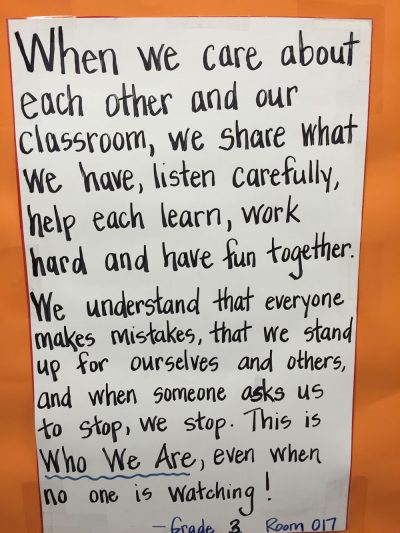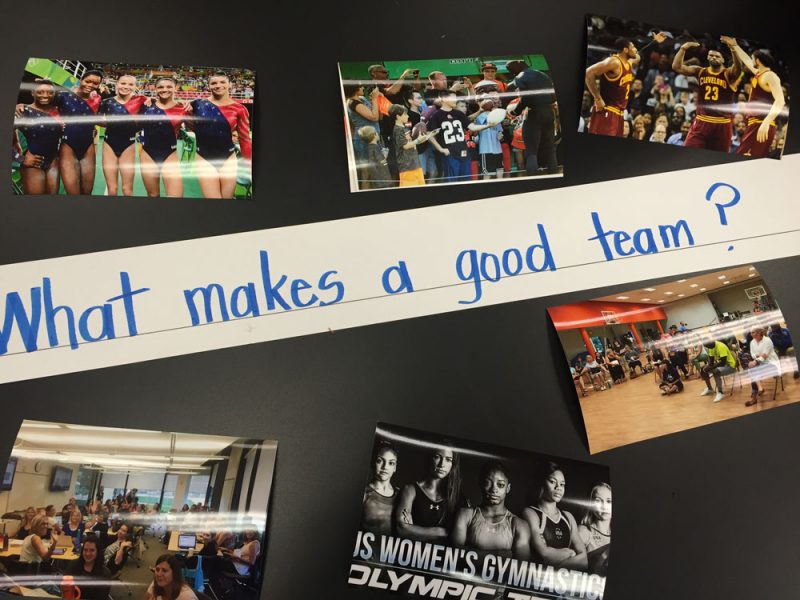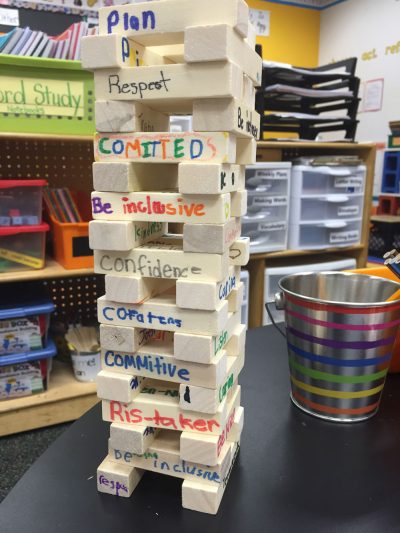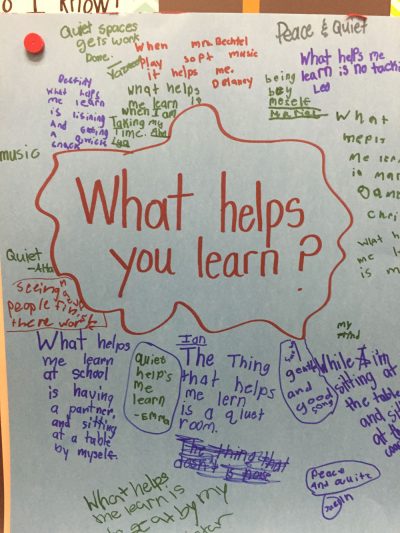Messy Works: How to Apply Self-Organized Learning in the Classroom
Self-Organized Learning Environments (SOLEs) are created when educators and parents encourage kids to work as a community to answer their own vibrant and challenging questions by using the internet. On this page you’ll find five relevant resources about my use of SOLES in my second and third grade classroom. First, I’m sharing four photographs to illustrate some of the ways that I integrate the SOLEs practice with my students; finally, an article about my passion for and integration of SOLEs—chock full of links to other information and resources—appears at the bottom of this page.
Creating Classroom Culture: Our Agreements
As the school year begins, my students embrace “essential agreements” about how they will relate with each other and our school community. I use this rather than a long lists of behavioral rules. This poster of the essential agreements provides a visual reminder of the tone and practices agreed upon by everyone in the classroom to ensure school year success.

Creating Classroom Culture
Our First Big Question
The first six weeks of the school year at Campus International School focus on establishing school culture—developing and reinforcing values, practices, essential agreements and constructive relationships for long-term academic and social success. Integrating the Self Organized Learning Environments (SOLEs) process from the outset, I frame the year with 2016’s first Big Question: What makes a good team?
With widely visible events like the Cleveland Cavaliers’ summertime win locally and the Women’s Gymnastics team successes at the 2016 Summer Olympics, the theme of teams and teamwork led students into a SOLEs process of delving into research and learning about the answers to the first Big Question of the year. Additionally, this practice serves the educator by providing start-of-school year insight into the social skills, self-perceptions and relational dynamics of the students.

Our First Big Question
A Multifaceted Big Question Tool
As the SOLEs process unfolds around the first Big Question of the year (What makes a good team?), I distributed Jenga-style blocks to each of my students, asking them to choose one attribute of a good team. After writing their words on the blocks, students placed their blocks to build this tower.
We talked about the structure being supported by each block. The class conversed about the fact that the structure is complete only when every block shows up and is in-place every day—and then compared the structure to the Cleveland Cavaliers.
“What happens when one of the players can’t play one day? What if a member of the team is sick or injured? How can other team members still support the structure when other members can’t contribute or be in place, or perform below their highest abilities?” These and other questions arose, broadening and deepening the students’ understanding of their own roles in our classroom community.

A Multifaceted Big Question Tool
Chalk Talk
Chalk Talk (rhymes better than Dry Erase Marker Talk!) is a silent way to reflect, generate ideas, check on learning, develop projects or solve problems, used throughout the International Baccalaureate curriculum. I start each day with a “provocation” that invites students to add their thoughts when they have time to do so. During the first week, provocations include questions like, “What stops you from learning?”, “What are your hopes for this school year?”, “What motivates you to learn?”, and “What helps you to learn?”.
Students add their own thoughts to the Chalk Talk posters daily; at the end of each day the entire group discusses the responses together, gaining understanding and insight into each other’s functioning, perspectives, wants and needs. If we know about each other, we can make better choices!
At the end of the year, I use the full year’s collection of Chalk Talks to affirm and remind the students of how much they’ve learned together in the course of the year.

Chalk Talk
An introduction to SOLEs, this article features an overview of my work with and passion for SOLEs as well as containing a number of additional resources.

